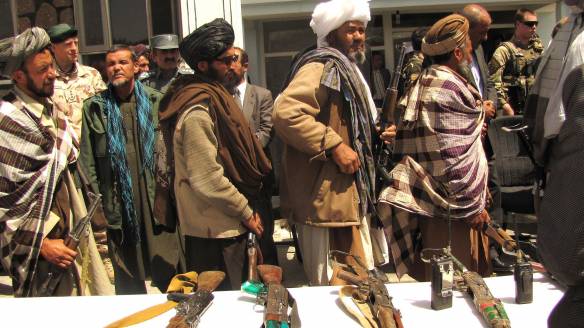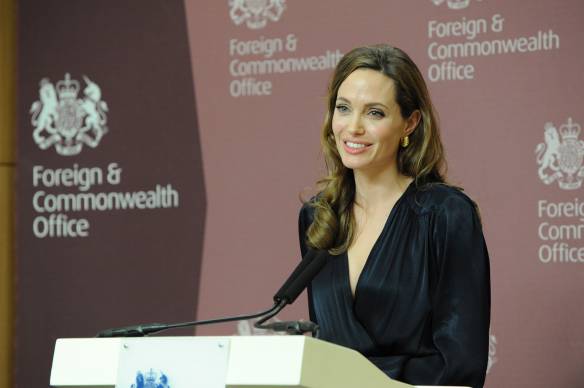
Angelina Jolie at the launch of the UK initiative on preventing sexual violence in conflict. Photo from Foreign and Commonwealth Office, via Wikipedia
Later this week, ministers from more than 140 countries, along with an estimated 1,500 invited delegates, are gathering in London for the Global Summit to End Sexual Violence in Conflict. The summit — the largest gathering of its type — is co-chaired by British Foreign Secretary William Hague and the actress Angelina Jolie, in her capacity as the special envoy for the U.N. High Commissioner for Refugees.
Read more in the blogpost at the Monkey Cage – by Dara Kay Cohen, Ragnhild Nordås (PRIO) and Elisabeth Wood, posted 9 June 2014.
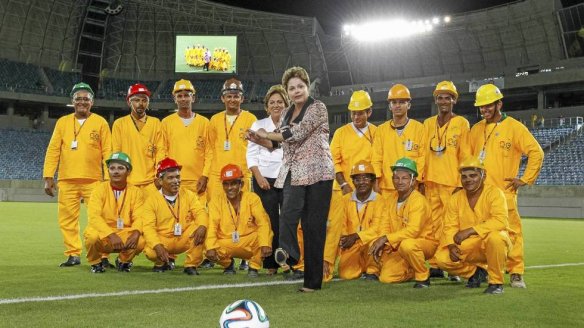
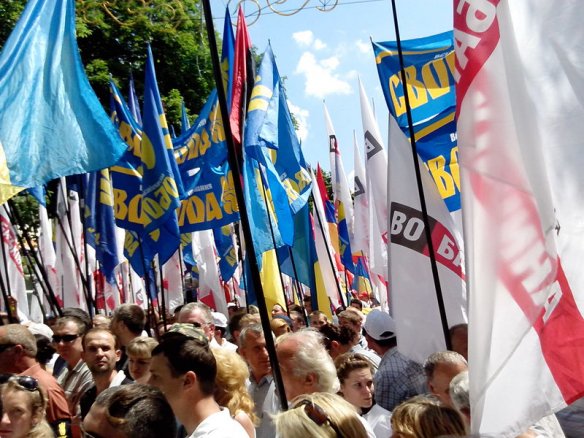
 The last 20 years have seen a gradual decline in the number and severity of internal armed conflicts worldwide. This trend is partly due to widespread improvements in factors such as education levels, economic diversification, and demographic characteristics. These factors are projected to continue to improve for the remainder of this century. As a consequence, the world should continue to grow ever more peaceful.
The last 20 years have seen a gradual decline in the number and severity of internal armed conflicts worldwide. This trend is partly due to widespread improvements in factors such as education levels, economic diversification, and demographic characteristics. These factors are projected to continue to improve for the remainder of this century. As a consequence, the world should continue to grow ever more peaceful.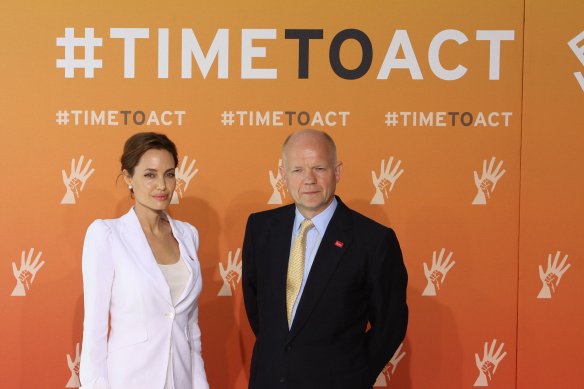
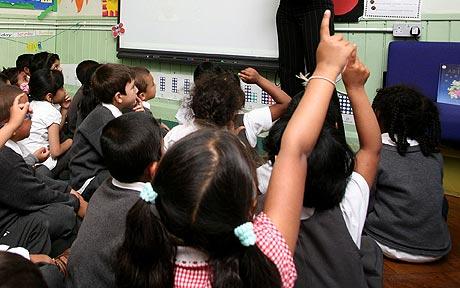 The field of education has been at the forefront of social policy concerns for at least three decades in the UK. The debate around integration and education revolves mainly around two aspects: the ability of migrants to integrate, depending on their level of education; and the challenges brought by migrants to the British education system. Based on
The field of education has been at the forefront of social policy concerns for at least three decades in the UK. The debate around integration and education revolves mainly around two aspects: the ability of migrants to integrate, depending on their level of education; and the challenges brought by migrants to the British education system. Based on 
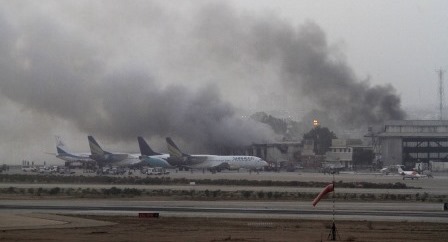 Last night, the Pakistani Taliban (otherwise known as Tehrik-i-Taliban Pakistan, or TTP) allegedly staged a bloody attack on Jinnah International Airport in Karachi. Shahidullah Shahid, TTP’s spokesman,
Last night, the Pakistani Taliban (otherwise known as Tehrik-i-Taliban Pakistan, or TTP) allegedly staged a bloody attack on Jinnah International Airport in Karachi. Shahidullah Shahid, TTP’s spokesman, 